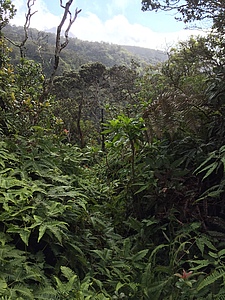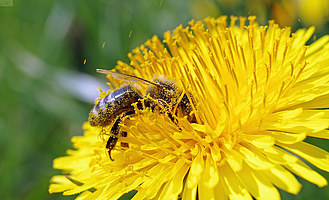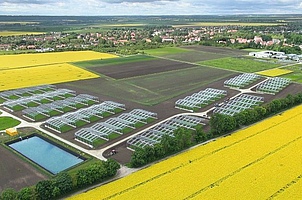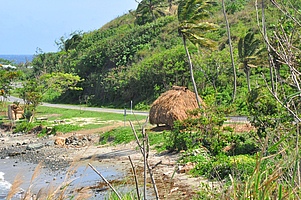Research Areas and Research Projects
Causes and consequences of exotic plant invasions

Why are some exotic plant species able to become dominant in a community while others remain minor constituents?
To date, research presents mixed and contradictory results of the relationship between phylogenetic novelty and invasiveness. We aim to resolve some of this variation with a synthetic approach that explicitly considers spatial scale, environmental gradients and stage of invasion. We conduct field experiments that examine multiple mechanisms of invasion and their interactions on exotic plant population dynamics. In addition, we are synthesizing the effects that natural enemy introductions have on the fitness and population dynamics of exotic weeds.
Projects:
- Community assembly and macroecology of islands
- Role of functional traits in explaining highly invaded Hawaiian ecosystems
- Synthesis of biocontrol agent effects on focal and non-target plants
Pollination ecology

Recent global reports such as the IPBES have documented that pollinators are declining in abundance and diversity at local, regional, and global spatial scales due to human changes to the landscapes. How will these pollinator declines change the structure of plant-pollinator interactions and the function of pollination?
We collect plant-pollinator network data and conduct pollination experiments in grassland ecosystems along elevation, latitudinal and land use gradients. We have developed collaborations in understudied regions of Europe that have high densities of traditionally managed meadows. We use hands-on summer schools to grow our database while training the next generation of pollination ecologists. We synthesize the causes and consequence of pollen limitation for plant species. We examine the history of science for this rapidly changing field of study.
Projects:
- Plant-pollinator networks in European meadows
- History of the field of pollination ecology
- Meta-analysis of pollen limitation
- Changes in plant-pollinator networks across long time intervals
- Plant-pollinator networks in agroecosystems
- Plant-pollinator networks in the Arctic
- Tools for rapid measurement of visitation networks
Climate change

Present and future climate change is a major driver of change in world´s ecosystems. How will changes in temperature and precipitation influence plant demography and population dynamics and plant biodiversity?
We are synthesizing the state of our knowledge on how climate change effects plant populations using COMPADRE, a global database of plant matric models and in collaboration with the working group. We are synthesizing the state of our knowledge on how climate change effects plant biodiversity using studies that experimentally manipulate temperature and precipitation. Further, we have initiated our own research to fill in gaps in our knowledge for certain plant species and regions of the world.
Projects:
- Effects of climate change on plant population dynamics and biodiversity (sApropos)
- Range limits and demography of Carpobrotus edulis
- Effects of climate change on plant demography in the Global Change Experimental Facility (GCEF)
Forest community dynamics

Forest ecosystems have economic and cultural value, and provide vital ecosystem services. The loss of forests in developing countries is a globally recognized environmental crisis. There is an urgent need to synthesize the state of our knowledge on patterns of tree species distributions and their threats.
We contribute to global efforts to understand the macroecological patterns of tree species, and assess the threat to these species. We collaborate with the Foundation for Ecological Security (FES) in India to identify important tree species, model their species distribution and assess threats to their populations by collecting demographic data.
Projects:
- Global tree synthesis
- India tree distributions and demography
